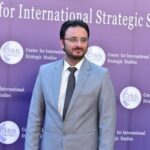Quadrilateral Security Dialogues, referred to as QUAD is a joint platform set up by Australia, India, the U.S and Japan to pursue their security and economic interests. The member states have proposed several fundamental areas for cooperation such as rule-based order, freedom of navigation, respect for international law and enhancing connectivity and maritime security, naming a few. The QUAD as an important part of Indo-pacific strategy, discusses the security and strategic dynamics of Indian Ocean Region (IOR). Consequently, it has grave implications on Pakistan’s security equation in the IOR.
The Indian Ocean is the world’s third largest ocean after the Pacific and Atlantic Oceans. Around 40 percent of the world trade and seventy percent of the global oil and gas pass through the waterways of the Indian Ocean. Moreover, there are four strategic maritime chokepoints in the ocean such as the Malacca Straits, the Suez Canal, the Strait of Hormuz and the Bab al-Mandab. A geopolitical thinker Mahan stated that whoever controls the Indian Ocean would control Asia. Keeping in view the importance of its geostrategic and maritime sea-lanes, the United States, India and China are contesting for political, economic and military dominance in the Indian Ocean. Pakistan has sided with China while India is supported by the U.S in this strategic competition.
The United States has put its weight behind India to play a vital role in the Asia-Pacific region and sufficiently equip so that it can establish its ascendency in South Asia as well as in the Indian Ocean region. Both the U.S and Australia have recognized the leadership role of India in the Indian Ocean region and have recognized the importance of New Delhi in defining the future Balance of Power. Therefore, it is believed that the effectiveness of QUAD to achieve its purpose lies in the exceptional role assigned to India in the Indian Ocean Region (IOR). However, in the previous month, a divergent view of the US and India over the Ukraine War was observed. Needless to mention, India’s stance to avoid declaring Russia as perpetrator was disappointed for the US. In the recent QUAD meeting (Tokyo) in May 2022, the United States however showed understanding of the Indian position in the Russia-Ukraine war by acknowledging India’s defense ties with Russia.
Pakistan’s strategic concerns with regard to the developments in the Indian ocean region are aggravated for two reasons. First, ninety percent of Pakistan’s trade is seaborne and its economy hinges on the safe and secure sea lines of communication in this ocean. The establishment of a security alliance in the area which includes India creates a security concern for Pakistan. In addition, India is increasing its naval power and is trying to dominate the Indian Ocean which is alarming for Pakistan. India is conducting naval exercises referred to as Malabar exercise in collaboration with Japan, U.S and India. A U.S naval statement said that the naval exercises would improve the cooperation of US and India’s maritime forces which, in turn, is expected to contribute to both sides’ ability to counter threats at sea. It represents serious threats to Pakistan strategic, as well as economic interests in the Indian Ocean Region.
There are multiple challenges that the quadrilateral agenda pose to Pakistan. First, Quad help increase India’s naval capabilities which pose a threat to Pakistan along with mounting conventional arms asymmetries in South Asia. India can attempt a naval blockade around Pakistan’s seashore which could disrupt Pakistan’s trade. Second, India’s conflict with China with the US, Japan, Australia and Western European powers supporting it puts Pakistan in a difficult situation. Moreover, India is using QUAD to rally regional support and improving its strategic and political position in the region. Given its economic strength, India is likely to draw the support of the regional countries over its strategic doctrine in South Asia to isolate Pakistan in the region. Pakistan has been obliged to take measures to protect its interests.
The position of China in the IOR is vital to Pakistan’s interests. China is heavily investing in China Pakistan Economic Corridor (CPEC) project which connects the northern part of China to Gwadar port of Pakistan. There are other factors as well that will protect Pakistan from external threats. With its strong economic and strategic ties with China it is not subject to isolation. Pakistan will try to further deepen its strategic links with China in order to countervail the dominant position of India in the Indian Ocean as well as South Asia. Pakistan also needs to maintain good friendly relations with other regional countries such as Iran, Bangladesh and Afghanistan as well as with the United States so that they could not be influenced by India’s anti-Pakistan regional approach.
This article was published in the Eurasia Review on July 29, 2022. https://www.eurasiareview.com/29072022-quadrilateral-agenda-and-security-concerns-for-pakistan-in-indian-ocean-region-oped/
Saliha Mehboob
Ms. Saliha Mehboob is currently working as a Research Officer at the Center for International Strategic Studies (CISS), Islamabad, Pakistan.
Murad Ali
Mr. Murad Ali is working as a Research Officer at the Center for International Strategic Studies (CISS), Islamabad, Pakistan.
Mr Murad Ali is a Research Officer at Center for International Strategic Studies (CISS), Islamabad

